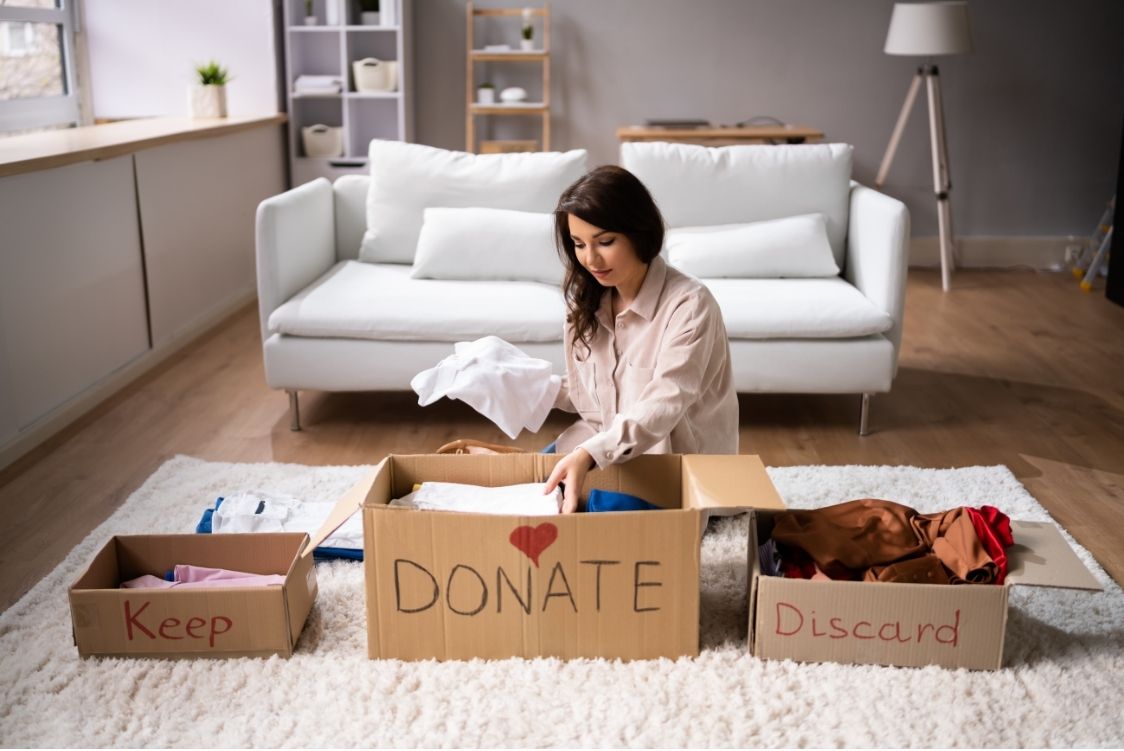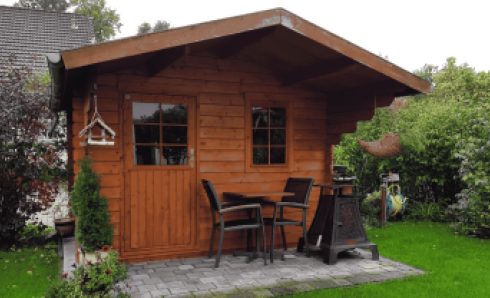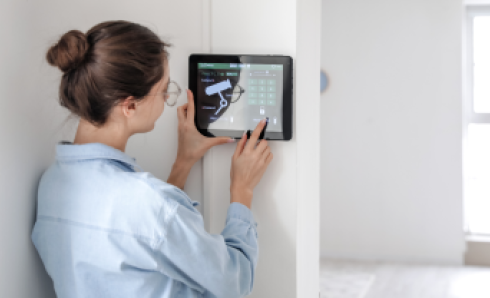Many of us know that slightly anxious feeling when our homes start to feel a little too busy. Clutter is part of life, and plenty of people fall into the trap on a regular basis, but a clutter-free home offers numerous benefits, from improved mental well-being and increased space to enhanced functionality.
Decluttering can transform your living environment, making it more organised and stress-free - allowing you to breathe easier and concentrate more. It’s in our best interests - if only we could get around to doing it.
1. Recognize the Importance of Decluttering
Decluttering is essential for creating a more organised and stress-free living environment. By eliminating unnecessary items, you can enhance the functionality of your space, making it easier to find and use what you need. Additionally, a decluttered home is visually appealing and can create a sense of calm and order, making it a more enjoyable place to live.
2. Identify the Psychological Benefits of Decluttering
Decluttering has significant mental health benefits. A tidy space can:
- Reduce stress and anxiety
- Allowing you to focus better
- Feel more in control of your surroundings
- Boost your mood and overall well-being
- Contribute to a more positive and productive mindset
When your home is clutter-free, relaxing and enjoying your space is easier. Conversely, a cluttered environment can begin to feel claustrophobic and stressful. For most, this isn’t a healthy environment to live or work in - so why do we do it?
3. Create a Decluttering Plan
To avoid feeling overwhelmed, developing a structured decluttering plan is crucial. Humans are great at launching headlong into action without thoroughly thinking it through or planning beforehand, but an extremely cluttered area can feel overwhelming. Instead of diving straight in, take a breath and make a plan.
- Set clear goals and timelines for each room or area in your home
- Be specific about what you will do in each room, i.e., remove all old magazines, clear shelves, etc.
- Break the process into manageable steps and tackle one room or category of items at a time.
4. Start By Sorting Household Items
Begin by sorting your household items into categories: keep, donate, recycle, and discard. Use boxes or bins for each category to keep the sorting organised and efficient. This step will help you determine what you truly need and what can be let go. Be honest with yourself about what you use and value, and avoid keeping items out of guilt or obligation.
5. Handle Sentimental Items
Dealing with sentimental items can be challenging. It's essential to balance emotional attachment with the need to declutter. Keep only the most meaningful items and find creative ways to preserve memories without retaining physical clutter. For example, you can take photos of sentimental items or create a memory box with a few cherished pieces.
Donating or throwing away items with sentimental value is never easy, especially if they once belonged to someone no longer with us. Even though you never use or rarely see some items, it can be painful to say goodbye. The bottom line is it’s impossible to keep everything. Retain a few of the most treasured objects, but accept that it’s probably time to say goodbye to the vast majority you’re holding on to.
6. Consider Hiring Professional Organizers
If you find the decluttering process overwhelming, consider hiring professional organisers. They can provide expertise and motivation, offering personalised solutions tailored to your specific needs. Professional organisers can help you create a more efficient and functional living space, making decluttering more manageable and less stressful.
7. Donate Unwanted Items
Donating unwanted items to charitable organisations helps you declutter and benefits the community. Research local donation centres to find out what types of items they accept. Commonly accepted items include clothing, furniture, household goods, and toys. Donating unwanted items can give them a new life and help those in need.
8. Strive to Maintain a Clutter-Free Home
Maintaining a clutter-free home requires regular decluttering sessions and practical storage solutions. Develop new habits to prevent clutter from accumulating again. For example, adopt a one-in, one-out policy, where you donate or discard an item every time you bring a new one into your home. Regularly review your belongings to ensure you only keep what you truly need and use.
9. Decluttering Specific Areas
Different areas of your home present unique decluttering challenges. Here are some tips for common problem areas:
Kitchen
- Challenge: Overcrowded cabinets and countertops.
- Solution: Remove duplicate items and unused gadgets. Organise items by frequency of use and consider installing shelf organisers.
Bedroom
- Challenge: Cluttered wardrobes and bedside tables.
- Solution: Sort clothes by season and donate what you haven't worn in a year. Use drawer dividers and under-bed storage.
Living Room
- Challenge: Overabundance of decor and miscellaneous items.
- Solution: Limit decor to a few meaningful pieces. It’s easy to keep adding trinkets or small items you find, but these tiny additions can quickly add up. Use baskets and storage ottomans to keep items organised.
Garage
- Challenge: Storage of infrequently used items and tools.
- Solution: Group similar items together and use pegboards and shelves. Dispose of broken or unused equipment. Try not to throw the clutter from your home into the garage - it’s simply moving clutter from one place to another.
10. Manage Paper Clutter
Paper clutter can quickly accumulate and create a chaotic environment. Here are some effective methods to manage it:
- Digitise Important Documents: Scan and store essential documents electronically to reduce physical paper clutter.
- Set Up a Filing System: Use labelled folders or a filing cabinet to organise and store necessary paper documents.
- Regular Reviews: Schedule regular reviews of your paper items to discard unnecessary documents and keep only what is needed.
Protect Your Home with 123.ie Home Insurance
Decluttering your home can lead to a more organised, functional, and stress-free living environment. By following these ten simple steps, you can enjoy the many benefits of a clutter-free home.
Clearing away the endless clutter is a habit that brings a home back to life and reveals what items you truly care about. Protecting your property and remaining cherished belongings should be your next priority. 123.ie offers comprehensive home insurance coverage at competitive rates to safeguard your home and everything in it. Create the clutter-free home of your dreams, then get the peace of mind that comes from knowing that you’re safe and sound should anything happen.





